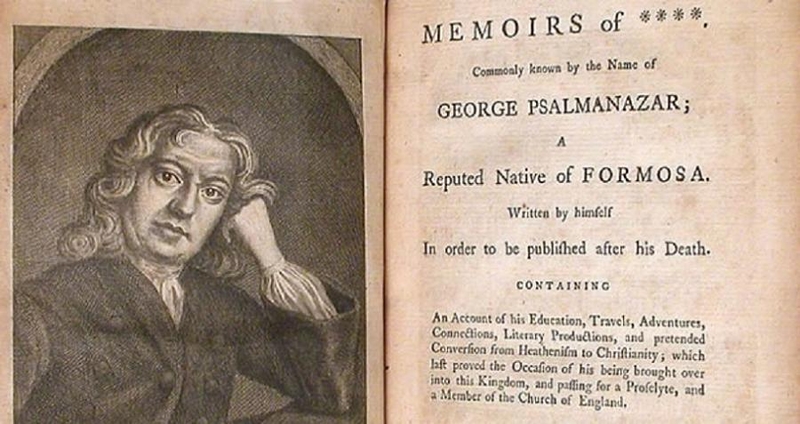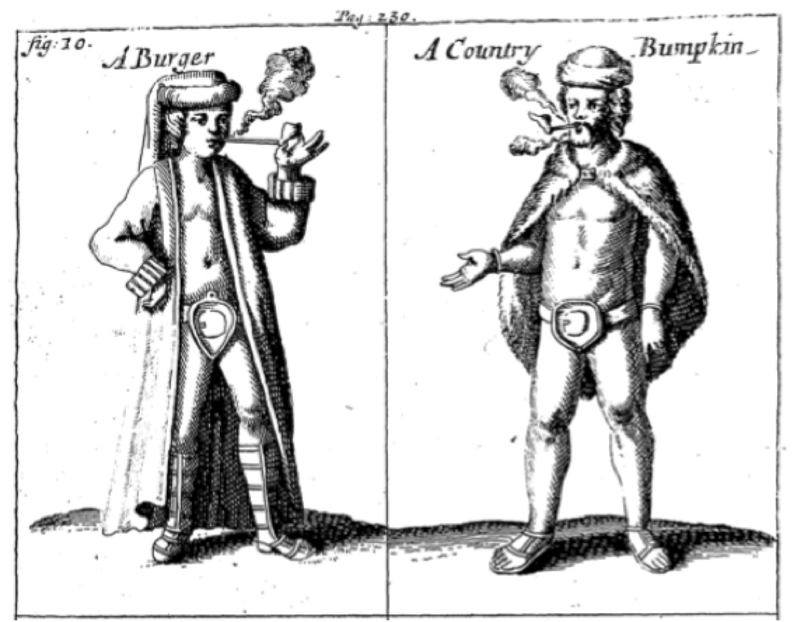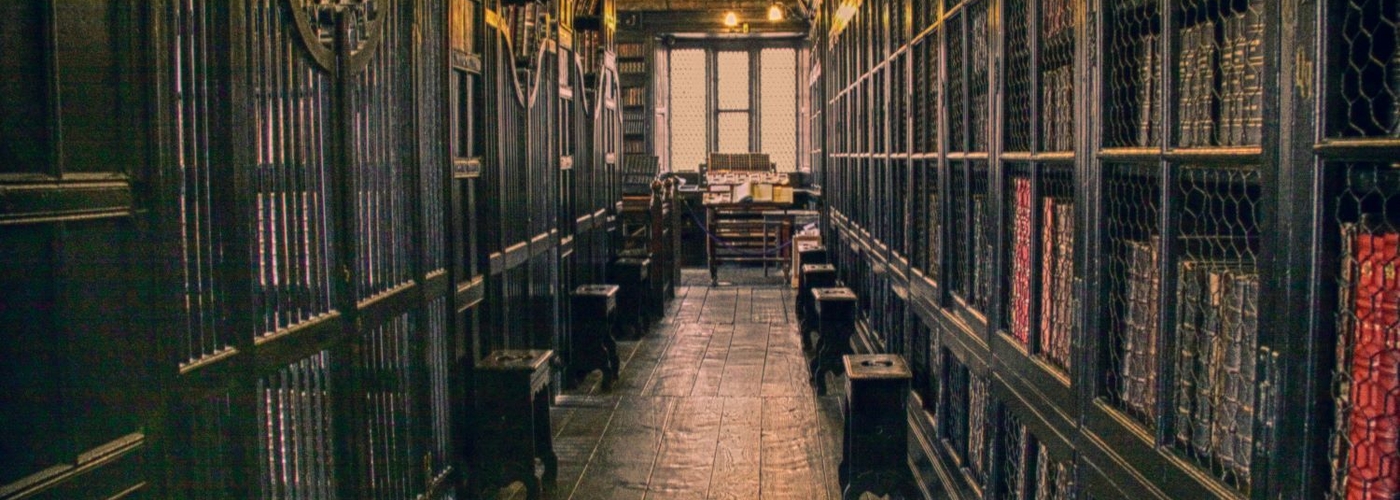Jonathan Schofield on an extraordinary Manchester visitor and a fabulous con man
After the 1715 mini-rebellion in favour of the Old Pretender (the exiled Stuart prince James Francis) four men were hanged in Manchester, at Knott Mill, the southern end of Deansgate. One of these traitors was Thomas Syddall and his head was impaled on the Market Cross which stood just about where the Louis Vuitton concession lies in Selfridges. Expensive bags, severed heads.
According to Psalmanazar Formosan men could have lots of wives but if a wife was unfaithful their husbands could eat them.
Rebels and executions is how we encounter George Psalmanazar. He became the clerk of a regiment of dragoons stationed in the town shortly after the rebellion as a warning to other would-be rebels. He visited Chetham’s Library (main picture above) and wrote about it.
‘At Manchester, I had moreover the opportunity of frequently visiting the noble library belonging to Chetham’s Hospital, and well furnished with all manner of books that could be purchased for money; for it is endowed with £100 per annum to supply it with new ones as they come out and yet, when I was there, they had about £400 in the bank and scarce knew how to lay it out, in as much as they were thinking of purchasing some of the most curious manuscripts.
'This, I could not but observe to them, was ill-judged considering the situation of it amongst tradesmen who have neither taste not knowledge for such valuable pieces…(I) rather advised them to lay out that income in purchasing such valuable modern books that are yearly published in England and out of it, which I thought would better answer the intention of the noble donor. They seemed to acquiesce in that I said but whether they followed my advice or not I have never enquired since.’
Fortunately, the library did not acquiesce to the well-meant if patronising advice of this charming and strange Frenchman. That’s why today the collection at Chetham’s is such a diverse and fascinating odyssey for anyone interested in literature.

George Psalmanazar had achieved fame in England by claiming to be from Formosa (modern Taiwan).
Born perhaps in the early 1680s in southern France he showed early in his life a remarkable facility for languages. He left his studies and wanting to travel to Rome but having no money he stole a priest’s staff and cloak and forged a passport passing himself off as an Irish pilgrim. People were too familiar with Ireland so he dropped that ruse and chose to become a Japanese convert – after a bit of study about Japan. He made-up some Japanese customs to make this believable such as sleeping sitting upright ‘as is the custom in my homeland’. He also ate raw meat spiced with cardamom following early European reports of sushi.
He travelled around Europe using this con making his way to the Netherlands were he served as a mercenary, claiming to become the first Japanese gent to become a soldier in Europe except he wasn’t really Japanese of course. He was changing his mind about his supposed nationality too and around that time decided to move his identity to Formosa, present-day Taiwan, which was even more mysterious than Japan at the time.
A Scottish priest, Alexander Innes, was completely taken in by this fresh story, 'converted' our proud con man and christened him George Psalmanazar after an obscure Assyrian king mentioned in the Bible.
By 1703 Psalmanazar was in England perfecting and profiting from his con to such effect he published a book about Formosa making every single detail up. It was a bestseller published in English with German and French editions.
According to Psalmanazar Formosan men walked naked aside from gold or silver plate covering their genitals. The men could have lots of wives but if a wife was unfaithful their husbands could eat them. The general population ate serpents found in the Formosan trees. Every year 18,000 boys were sacrificed to their savage gods and the priests feasted on their flesh. Psalmanazar liked to shock his audience with stories of cannibalism.
The population lived underground in circular houses which was convenient for Psalmanazar because not everybody believed his con. His pale skin colour was a problem but he explained that away by saying the subterranean existence was most pronounced in the upper classes of which he was part. Psalmanazar even created a workable, if fake, Formosan language and people attempted to learn it.

In 1706 he admitted the whole pretence as it was getting increasingly difficult to keep up especially as reports from real travellers to Formosa became more available. Let’s hope nobody wasted their time learning Psalmanazar’s Formosan before journeying there. That would have confused the locals.
Oddly enough nobody sued him for his con despite the fact he'd lived off its proceeds. Indeed, he went on to do a number of proper jobs including his spell in the army which brought him to Manchester. He even contributed to a book called ‘A complete system of geography’ in which he brutally criticised himself for his own nonsense about Formosa. He became increasingly religious as he aged. He took a young Samuel Johnson under his wings and had the honour to be satirised by Jonathan Swift, author of ‘Gulliver’s Travels’. He lived on a pension of £30 a year from an admirer. He published an autobiography posthumously but even then didn’t reveal his birth name.
George Psalmanazar wanted an air of mystery and enigma to outlive him. It has done and he remains one of the most remarkable con men in history. If nothing else the sheer effort he put into maintaining his subterfuge remains both wierd and astonishing.
Read next - ‘A kindly craftshop with food and drink’: Gail’s Bakery, King Street, reviewed
Read again - Mines Advisory Group - a Mancunian force for global good
Get the latest news to your inbox
Get the latest food & drink news and exclusive offers by email by signing up to our mailing list. This is one of the ways that Confidentials remains free to our readers and by signing up you help support our high quality, impartial and knowledgable writers. Thank you!
















